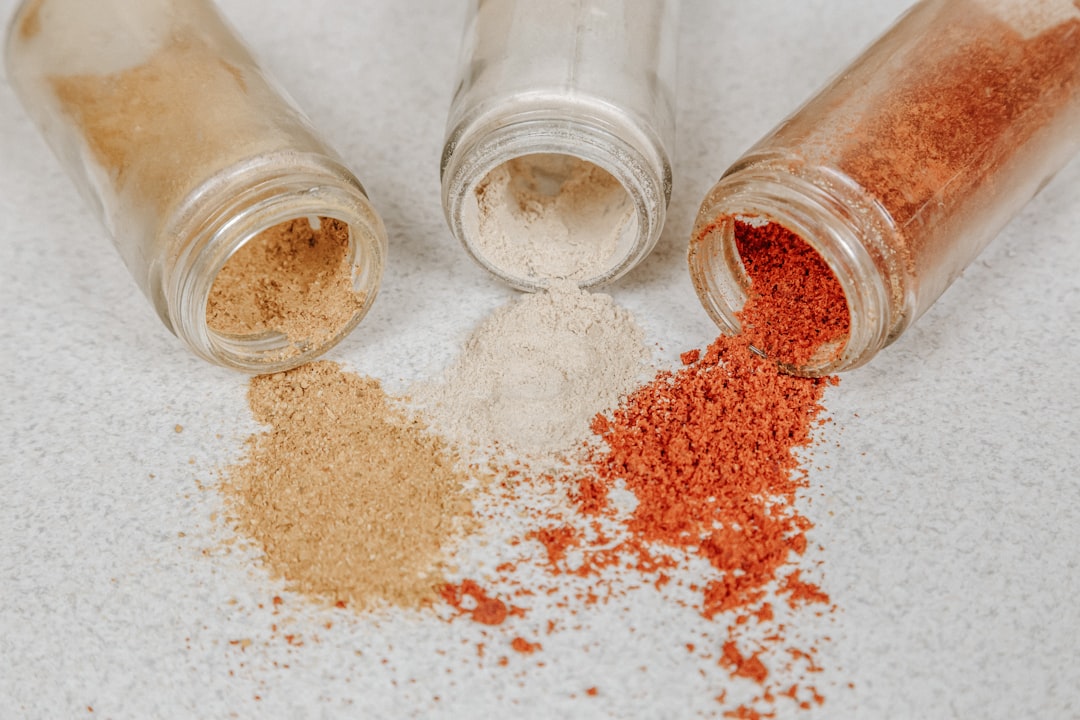Natural skincare refers to the use of products that are made from naturally derived ingredients, such as plant extracts, essential oils, and minerals, as opposed to synthetic or chemical-based ingredients. These products are formulated to be gentle on the skin and are often free from harsh chemicals, artificial fragrances, and preservatives. Natural skincare is based on the belief that the skin can benefit from the healing and nourishing properties of nature, and that using natural ingredients can help to promote healthy, radiant skin.
Natural skincare products are often made using traditional methods and are designed to work in harmony with the body’s natural processes. They are also typically cruelty-free and environmentally friendly, as many natural skincare brands are committed to using sustainable and ethically sourced ingredients. Natural skincare is not only about what is in the products, but also what is not in them. This means that natural skincare products are free from potentially harmful ingredients such as parabens, phthalates, and sulfates, which are commonly found in conventional skincare products. Overall, natural skincare is about embracing a more holistic approach to skincare, focusing on the health and well-being of the skin as well as the planet.
Summary
- Natural skincare focuses on using ingredients derived from nature, such as plants, herbs, and essential oils, to promote healthy skin.
- Benefits of natural skincare include reduced exposure to harmful chemicals, potential for improved skin health, and environmental sustainability.
- Drawbacks of natural skincare may include limited shelf life, potential for allergic reactions, and the need for careful ingredient selection.
- Those with sensitive skin, skin conditions, or concerns about the environmental impact of skincare products should consider a natural skincare routine.
- Individuals with specific skin concerns that require medical-grade treatments or those who prefer the convenience of mainstream skincare products may want to avoid a natural skincare routine.
- Transitioning to a natural skincare routine involves gradually replacing conventional products with natural alternatives and being mindful of ingredient labels.
- When looking for natural skincare products, consider factors such as ingredient transparency, certifications, and compatibility with your skin type and concerns.
Benefits of Natural Skincare
There are numerous benefits to using natural skincare products. Firstly, natural skincare products are often gentler on the skin, making them suitable for those with sensitive skin or skin conditions such as eczema or rosacea. The use of natural ingredients can help to soothe and nourish the skin without causing irritation or inflammation. Additionally, natural skincare products are less likely to cause allergic reactions, as they do not contain synthetic fragrances or harsh chemicals that can be irritating to the skin.
Furthermore, natural skincare products are often rich in vitamins, antioxidants, and other beneficial nutrients that can help to improve the overall health and appearance of the skin. For example, ingredients such as vitamin C, hyaluronic acid, and botanical extracts can help to brighten the complexion, reduce the appearance of fine lines and wrinkles, and promote a more youthful-looking skin. Natural skincare products also tend to have a lower environmental impact, as they are often made using sustainable and biodegradable ingredients, and are packaged in eco-friendly materials. By choosing natural skincare products, consumers can support ethical and sustainable practices within the beauty industry.
Drawbacks of Natural Skincare
While natural skincare has many benefits, there are also some drawbacks to consider. One of the main drawbacks of natural skincare is that it can be more expensive than conventional skincare products. This is because natural skincare products often use high-quality, ethically sourced ingredients, which can be more costly to produce. Additionally, natural skincare products may have a shorter shelf life than their synthetic counterparts, as they do not contain preservatives to prolong their longevity. This means that natural skincare products may need to be used within a certain timeframe to ensure their effectiveness.
Another potential drawback of natural skincare is that it may not always deliver the same immediate results as synthetic skincare products. While natural ingredients can be highly effective in nourishing and improving the health of the skin over time, they may not provide the same instant gratification as products that contain synthetic ingredients such as silicones or parabens. Additionally, some people may find that certain natural ingredients can still cause skin reactions or sensitivities, so it’s important to carefully research and patch test any new natural skincare products before incorporating them into a routine.
Who Should Consider a Natural Skincare Routine
Natural skincare can be beneficial for a wide range of people, but it is particularly well-suited for those with sensitive or reactive skin. The gentle nature of natural skincare products makes them ideal for individuals who struggle with skin conditions such as eczema, psoriasis, or rosacea, as they are less likely to cause irritation or exacerbate existing issues. Natural skincare can also be beneficial for those who are concerned about the potential long-term effects of using synthetic chemicals on their skin, as well as for those who are looking to adopt a more sustainable and ethical approach to their beauty routine.
Furthermore, individuals who are passionate about supporting environmentally friendly and cruelty-free practices within the beauty industry may also find natural skincare to be a good fit for their values. By choosing natural skincare products that are made using sustainable and ethically sourced ingredients, consumers can feel confident that they are making a positive impact on the planet. Overall, anyone who is looking for gentle, nourishing skincare products that promote healthy and radiant skin may benefit from incorporating natural skincare into their routine.
Who Should Avoid a Natural Skincare Routine
While natural skincare can be beneficial for many people, there are some individuals who may need to exercise caution when using natural skincare products. For example, those with severe acne or other serious skin conditions may require medical-grade treatments that are not typically found in natural skincare products. In these cases, it’s important for individuals to consult with a dermatologist or healthcare professional to determine the most appropriate course of treatment for their specific needs.
Additionally, individuals who have specific allergies or sensitivities to certain natural ingredients should carefully review the ingredient lists of natural skincare products before use. While natural ingredients are generally considered to be gentler on the skin than synthetic chemicals, it’s still possible for individuals to have adverse reactions to certain botanical extracts or essential oils. Those with known allergies should always patch test new products before incorporating them into their routine to avoid potential allergic reactions.
How to Transition to a Natural Skincare Routine
Transitioning to a natural skincare routine can be a gradual process that involves making conscious choices about the products you use on your skin. One approach to transitioning to natural skincare is to start by replacing one or two products in your routine with natural alternatives. For example, you might begin by switching out your conventional cleanser for a gentle, plant-based cleanser, or by incorporating a natural facial oil into your moisturising routine. This gradual approach allows your skin to adjust to the new products and gives you time to assess how your skin responds to natural ingredients.
Another important aspect of transitioning to a natural skincare routine is to educate yourself about the different natural ingredients and their benefits for the skin. By understanding which ingredients are best suited for your specific skin concerns, you can make informed choices about the products you incorporate into your routine. It’s also helpful to seek out reputable brands that are committed to using high-quality, ethically sourced ingredients in their formulations. Look for certifications such as organic or cruelty-free labels to ensure that you are choosing products that align with your values.
Tips for Finding the Right Natural Skincare Products
When it comes to finding the right natural skincare products for your routine, there are several tips that can help you make informed choices. Firstly, it’s important to consider your specific skin type and concerns when selecting natural skincare products. For example, if you have dry skin, you may want to look for products that contain hydrating ingredients such as hyaluronic acid or plant oils. On the other hand, if you have oily or acne-prone skin, you may benefit from products that contain clarifying ingredients such as tea tree oil or witch hazel.
Additionally, it’s helpful to research and read reviews about different natural skincare brands and products to gain insight into their effectiveness and quality. Look for brands that are transparent about their ingredient sourcing and production processes, as this can give you confidence in the integrity of their products. Many natural skincare brands also offer sample sizes or travel kits that allow you to try out their products before committing to full-sized purchases.
Finally, don’t be afraid to seek advice from skincare professionals or beauty experts when exploring natural skincare options. A dermatologist or licensed esthetician can provide valuable guidance on which natural ingredients may be best suited for your skin type and concerns. By taking a thoughtful and informed approach to selecting natural skincare products, you can create a routine that supports the health and vitality of your skin while aligning with your values for ethical and sustainable beauty practices.
Discover how to create a spa-like experience at home with our latest article on Best Skincare Products. Transform your skincare routine into a luxurious pampering session by following our expert tips and tricks. Whether you’re looking to relax and unwind or simply want to elevate your self-care game, our guide has got you covered. Click here to read more and indulge in the ultimate at-home spa experience.
FAQs
What is a natural skincare routine?
A natural skincare routine involves using products made from natural ingredients such as plant extracts, essential oils, and minerals. These products are free from synthetic chemicals, artificial fragrances, and preservatives.
What are the benefits of a natural skincare routine?
Natural skincare products are often gentler on the skin, making them suitable for those with sensitive skin or skin conditions. They are also environmentally friendly and may have fewer negative impacts on the planet compared to products containing synthetic ingredients.
Is a natural skincare routine suitable for all skin types?
While natural skincare products can be beneficial for many skin types, it’s important to note that not all natural ingredients are suitable for everyone. Some individuals may still experience allergic reactions or sensitivities to certain natural ingredients.
How can I determine if a natural skincare routine is right for me?
If you have sensitive skin, allergies to synthetic ingredients, or are concerned about the environmental impact of skincare products, a natural skincare routine may be a good fit for you. It’s always best to consult with a dermatologist or skincare professional to determine the best routine for your specific skin needs.
Are natural skincare products regulated?
In the UK, natural skincare products are regulated by the Cosmetic, Toiletry, and Perfumery Association (CTPA) and must comply with the EU Cosmetics Regulation. This ensures that natural skincare products meet safety and quality standards.




